Authors:
Julie Williamson
As I move through the world, I shape my experiences using technology. Most frequently, I'm changing my reality by using audio as I go through my day. I spend a lot of time listening to books, which allows me to weave my reading experiences into my everyday life. I love physical books and being able to thumb through the chapters and smell the pages. But I live audiobooks, and they become part of my wandering in a way physical books cannot.
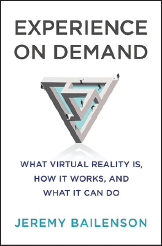
As rapidly as immersive technologies change, I find that Experience on Demand: What Virtual Reality Is, How It Works, and What It Can Do, by Jeremy Bailenson (narrated by Jeffrey Kafer), still inspires, even six years after publication. I wonder how I would've reacted to it at the time it was released, when I was just beginning my own immersive research, and my thinking around the topic was just developing. Starting from the amazing expression of "experience on demand," which viscerally captures the power and intensity of what immersion can provide, Bailenson discusses how using the infinite possibilities of immersion for mundane or everyday tasks seems like a waste. I believe we're moving toward a future where immersive experience will always be available, meaning some immersive experiences will become routine or mundane. I think immersion can be just as powerful for extraordinary experiences as it can for day-today activities. Bailenson also discusses his lab's practices around limiting extended exposure to immersive experiences. In practice, however, immersive cultures have leaned into extended immersion in recent years. For example, I am fascinated by TikTok streamers who spend extended periods immersed, and for my own work I spend extended periods using these technologies. But I did feel my reality start to collapse after spending about 30 hours in a Quest 3 last year!
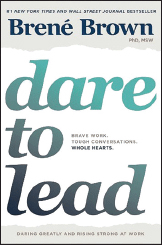
Brené Brown might not be everyone's cup of tea, but I'm a longtime fan of the self-help section. Her book Dare to Lead: Brave Work, Tough Conversations, Whole Hearts, which she also narrates, focuses on vulnerability as a foundational leadership quality. The book doesn't cover just this topic, but how I thought about vulnerability really changed because of it. I'm at a strange moment in my career, where I'm finally realizing that I'm solidly midcareer, and it might be time to grow up and lead my team and myself a little differently. I'm still working on putting these concepts into practice, but this is a book I imagine won't be leaving the first page of my audiobook app any time soon. l have grown as a professional and a person through many hours with my favorite self-help titles (some additional ones I like are Surrounded by Idiots, How to Listen, and How to Talk to Anyone).
Dare to Lead focuses on vulnerability as a foundational leadership quality. The book doesn't cover just this topic, but how I thought about vulnerability really changed because of it.
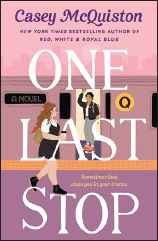
I don't spend all my time immersed in nonfiction, but I won't admit how much time I spend listening to all kinds of fantasy. I recently finished One Last Stop, by Casey McQuiston (narrated by Natalie Naudus), which I heard described as "urban fantasy," a genre I didn't know existed. Now I want more of it. The sapphic romance combines fantastical elements with modern Brooklyn, as two women solve the mystery of an endless subway ride. It's a story I experienced deeply, because I often listened to the audiobook while walking through urban spaces, hearing the sounds of the city and trains while the story unfolded around me. This kind of everyday immersion is why I love audiobooks.
Julie Williamson is a senior lecturer in the School of Computing Science and a co-director of Realities and Immersion Glasgow, the center for research, teaching, and innovation in immersive realities at the University of Glasgow. Her research focuses on understanding what it means to be social in XR. [email protected]
Copyright 2025 held by owner/author
The Digital Library is published by the Association for Computing Machinery. Copyright © 2025 ACM, Inc.

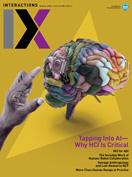





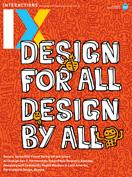
Post Comment
No Comments Found